Mozambique: Cabo Delgado fighting creates migratory pressure - Kaja Kalas
President Nyusi receives mediators – Watch
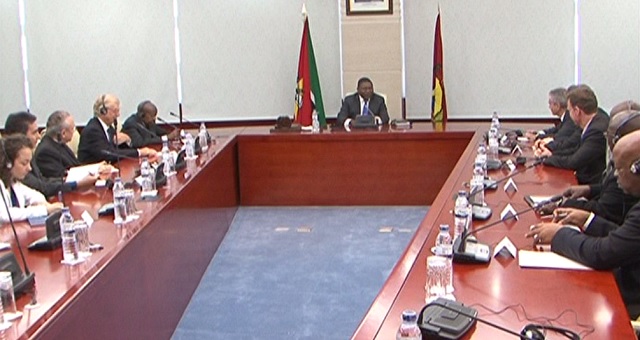
TVM / President Nyusi stressed, “in this process we want the winners to be the Mozambican people".
Mozambican President Filipe Nyusi on Wednesday morning in Maputo received a team of international mediators, proposed by the government and the opposition party Renamo, who will participate in the government/Renamo dialogue.
The immediate aim of the dialogue is to create the conditions for a face-to-face meeting between President Nyusi and the leader of Renamo, Afonso Dhlakama.
The government had initially opposed inviting international mediators to participate, on the grounds that Mozambicans are quite capable of dealing with their own problems. But Renamo refused to engage in further dialogue without foreign mediators at the table. Therefore, in June the government ceded to Renamo’s demand
Whilst the immediate issue on the table is setting up a meeting between the two leaders, the top priority is putting an end to the violent campaign being carried out by Renamo’s armed militia in the centre of the country.
At the meeting, President Nyusi thanked the mediators for their readiness to join the efforts to restore a climate of peace. He then described the path that had brought the country to its present situation.
The President pointed out that that the current hostilities began in January 2015 after his inauguration as President, having been the victor in the fifth general elections. Renamo had tried to contest the elections because, in their view, they were not free, fair, and transparent.
He added that following this, space was created for dialogue to take place with two meetings between himself and Dhlakama. This led to Renamo taking its seats in the country’s parliament (the Assembly of the Republic) and the provincial assemblies. In addition, Renamo brought to parliament a proposal to transform the provinces into autonomous provincial municipalities.
However, the proposal did not get the response that Renamo had expected, which led to a period of disagreement which worsened with the resumption of armed attacks on roads by men from Renamo.
In telephone conversations that the President had with the leader of Renamo, held to maintain dialogue conducive to restoring effective peace, Afonso Dhlakama stressed the need to have intermediaries. This request was accepted with a view to halting the deaths of innocent people in the armed assaults carried out by Renamo.
The President explained that this was why the government unconditionally accepted Renamo’s proposal to invite the European Union, the Catholic Church, and South African President Jacob Zuma to mediate.
In addition, the government proposed that invitations should also be sent to the Global Leadership Foundation (represented by former President of Botswana, Ketumile Masire), the Africa Governance Initiative and former President of Tanzania, Jakaya Kikwete.
President Nyusi stressed, “in this process we want the winners to be the Mozambican people. The interests of the people, as well as sovereignty, have to prevail”.
The government and Renamo have set up a Joint Commission composed of six representatives from each side. They are charged with preparing the groundwork for the meeting between the President and Dhlakama.
The government team consists of: former Security Minister Jacinto Veloso; former Justice Minister Benvinda Levi; former Minister of State Administration Alfredo Gamito; parliamentary deputy and former chief of staff of the armed forces, Antonio Hama Thai; the spokesperson for the parliamentary group of the ruling Frelimo Party, Edmundo Galiza-Matos Junior; and Alves Muteka, who is an official in the President’s office.
Renamo’s representatives are Jeremias Pondeca, a former parliamentary deputy; Leovigildo Buanacasso, the unsuccessful Renamo candidate for mayor of the northern city of Cuamba in a municipal by-election of 2014; Maria Joaquina Inacio, who is a former member of the National Elections Commission (CNE); Jose Manteigas; Andre Magibire; and Eduardo Namburete. The latter three are all parliamentary deputies.
The President stated that he will not play a major role in the meeting of the Joint Commission to prepare for the high-level meeting.
Commenting on the process, the President stressed that the country has a constitution and an electoral law. He added that although these documents are not static, it is necessary for the mediators to know their contents as well as how they operate.
He added that there is an archive containing all the relevant documents since the General Peace Agreement was signed in 1992. The President stressed that this documentation must be available and utilised to ensure that the process does not go off the tracks. He emphasised that the mediators can, if necessary, consult anyone, including himself, about the contents of the file.


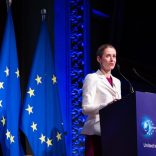
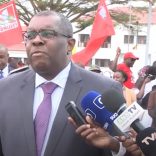
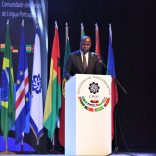

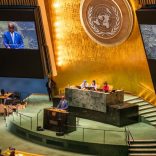






Leave a Reply
Be the First to Comment!
You must be logged in to post a comment.
You must be logged in to post a comment.